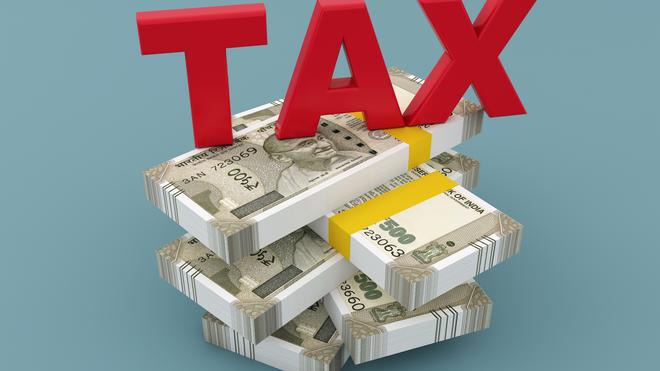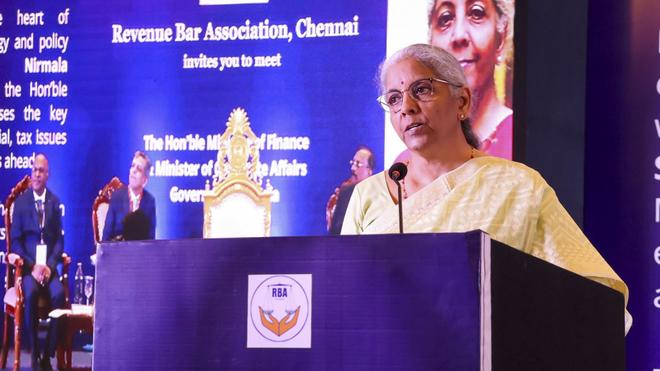Gold loan sector and NBFC reforms needed for true financial inclusion
With all eyes on the upcoming Union Budget 2024, there is a noticeable sense of anticipation from the honorable Finance Minister to boost the rural economy with higher allocations and push public capex to bring about a greater cyclical recovery. As there continues to be stability in the government, we are confident that the Budget will strive for a balanced approach, incorporating crucial elements that will benefit salaried individuals, farmers, women, and the youth of India.
The NBFC sector in India is also expecting the Budget to provide relief in the form of exemptions, liquidity support and other measures to help the government in achieving the vision of ‘Viksit Bharat@2047’. The specific expectations from the budget 2024-25 would be:
Indian households hold enormous amounts of gold jewellery, estimated at approximately 25,000 tonne. Of this, rural India holds a lion’s share of 65% of the nation’s gold which remains largely untapped as a financial asset. Given the importance of gold loan NBFCs in catering to the bottom of the pyramid and driving financial inclusion, we wish that the Government announce a desirable policy change of recognizing gold loans, particularly under ₹50,000 as priority sector lending. The recognition will enable gold loan NBFCs to provide funds at cheaper interest rates applicable for priority sectors (just as in case of banks). This aspect could play a crucial role in unlocking the potential of India’s idle gold and ensuring that credit is infused towards productive and inclusive economic activities.
Traditional gold loans, although beneficial, involve a lot of paperwork. Allowing gold loan NBFCs to offer UPI-linked credit lines could enable individuals to access instant credit against their gold jewelry via their smartphones, thereby revolutionising credit access. This digital innovation can provide secure, instant, and convenient credit access, particularly benefiting small businesses and rural citizens. I am hopeful that the RBI permits gold loan NBFCs to issue electronic cards for credit lines sanctioned to individual customers against their gold collaterals to facilitate online transactions and include more people into India’s digital economy.
Gold loan NBFCs are subjected to lower exposure limits as compared to other NBFCs, which restricts their ability to extend credit. This limitation particularly impacts potential customers in semi-urban and rural India where gold loans are possibly the only source of credit for individuals and small businesses. Addressing this disparity and aligning the single counterparty exposure limits to that of other NBFCs i.e. 20% of Tier-1 capital, would significantly increase the ability of gold loan NBFCs to provide credit to India’s grassroots economy.
Previously, investors were inclined to invest in corporate bonds due to the absence of TDS which allowed them to receive interest payments without immediate tax deductions. The recent introduction of TDS on listed debentures has had a constrained impact on the market because it not only reduces the net returns for investors but also increases the administrative burden. The result has also been a reduction in the overall subscription for new NCD issuances introduced by NBFCs. It would be great if the Government could consider eliminating the TDS requirement which will simplify the investment process, enhance market liquidity, and attract more retail investors. This will lead to making citizens a stakeholder in India’s corporate growth.
At present, SEBI’s regulations prohibit NBFCs from offering higher interest rates to retail investors as compared to institutional investors in public issues of NCDs, making NCDs less appealing particularly to senior citizens and pensioners who rely on fixed-income investments. Additionally, the current interest rates also do not adequately compensate for the risks associated with these investments. Contrary to NBFCs, banks offer differential interest rates to attract more retail deposits. Adopting a similar approach for NBFCs will ensure a fair compensation for retail investors and boost their participation in the NCD market.
The Union Budget 2024 is an important opportunity to implement some bold reforms that can help create a financial ecosystem which is not only robust and diverse in its nature but also inclusive and empowering. As we work towards a $5 trillion economy, NBFCs will play a crucial role in extending last mile financial services and these proposals will also bring formal credit for people at the grassroots.
(The writer is MD of Muthoot Finance)



)
)

)

)

)
)
)
)
)
)








